Did you suffer from an abusive childhood, and now as an adult, you are still trying to move on but healing childhood trauma is proving to be more difficult than you had thought? Having a traumatic childhood is difficult and extremely painful to overcome, even when you are an adult.
Having an abusive childhood can have a serious impact on a person’s psyche, and can also affect their adult life to a large extent. Contrary to what most people believe, moving on from an abusive childhood is easier said than done.
Having a bad and rough start to your life can not only bring about permanent changes in your psychology, but it can also end up derailing your mental and even physical health for good.
It is something that I have gone through personally. I grew up in a home where my father was absent almost all the time, and even when he was with us, he never talked to us due to his deeply ingrained PTSD. On top of that, my mother was manic-depressive.
Because of this, my two brothers and I never got to experience a very normal childhood. But, in a way I was luckier than most; at least my parents were somewhat loving, albeit flawed and complicated.
When it comes to childhood trauma, unfortunately, it is way more common than you think. But when it comes to struggles like this, it is imperative that you try not to let this control or rule over your life.
Even though it might seem nearly impossible when you think about healing childhood trauma and using it for a better and brighter future for yourself, there are certain things you can do to achieve this goal.
So, how to heal from childhood trauma? Read on to know more!
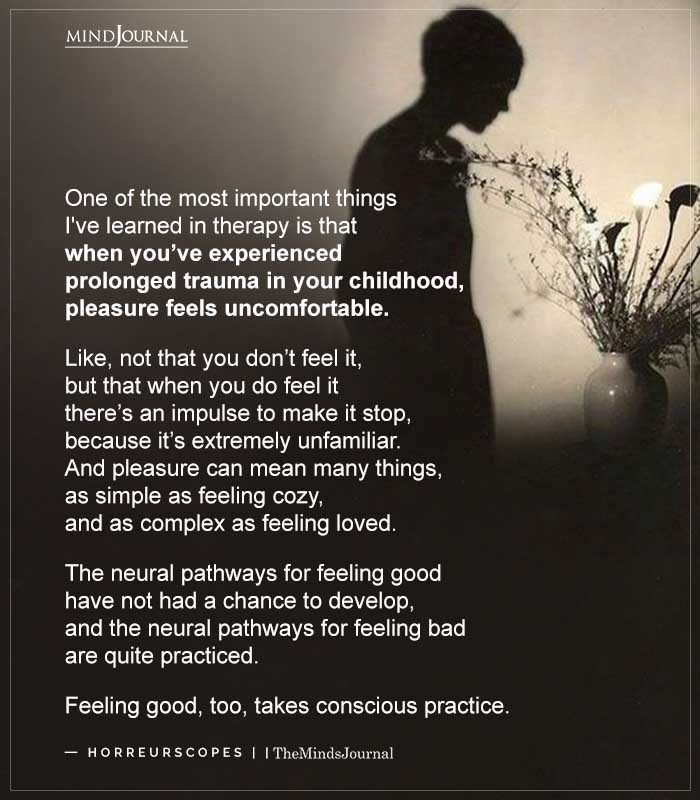
7 Steps To Healing Childhood Trauma As An Adult
1. Reframe your story.
Looking back on a miserable or abusive childhood puts you in the position of a helpless victim. It can make you feel unloved and unwanted. This mindset and feeling can trap you in a constant cycle of psychological and mental self-abuse.
Instead of feeling powerless and incapable, think about all those times you got yourself out of innumerable painful situations when you were a mere child and became the strong person you are today.
The moment you start thinking like this, you stop feeling like a victim, take control of your own power, and recovering from childhood trauma becomes a little easier.
2. Let go of self-blame and shame.
Shame is one of the most toxic feelings you can experience when it comes to having a traumatic childhood. And traumatic childhood experiences are probably one of the toughest to move on from. Sometimes, it’s a permanent thing that you live with, and sometimes it hits you out of nowhere and strikes who you are as a person.
It makes you question your self-worth every step of the way. Bloomfield describes it as the ‘cancer of the spirit’ as it gives you the feeling that you are undeserving of joy or love.
When you try to let go of your self-shame, make sure that you do not shift those feelings into blame. Accept the mistakes of your parents. Blame can poison your mind and make you angry, just like shame destroys and poisons your soul and spirit.
Allowing blame to take over is giving yourself a get out of jail free card because the mistakes you make can be attributed to someone else. Always remember that you are the master of your fate and destiny, and how your life shapes up is completely on you!
Related: 10 Tattoos That Represent Healing From Childhood Trauma
3. Don’t let regret dominate you.
One of the downsides of letting go of self-blame and self-shame is permitting regret to dominate your mind, body, and spirit. Regret drags us into the vicious cycle of if only and what if, and once you start giving into regret, it can destroy you mentally.
Focus on all the lessons you have learned from your experiences and let them prove to you that, how far you have come. Use your negative and painful experiences for transforming yourself into a better, stronger, and resilient person, and ultimate work towards healing childhood trauma.
When you start doing this, regret will stop being negative, and with time it will even cease to exist.
4. Never bottle up your emotions.
Much of the negative things we think and feel are a result of deep wounds that we have harbored from childhood. Now that you’re older it is time to address those emotions. Whether you do that by talking to a professional therapist, tell your friends, write in a journal, or indulge in your favorite hobby.
On days when the weight of the past weighs heavily on your shoulders, try shouting as loud as you can in a wide-open space or a room on your own. Visualize the pain as you do it and just allow yourself to feel it before expelling it from your heart and mind.
Katherine Mayfield, an award-winning psychiatrist, and the author believes that any emotional release benefits her and helps her move on from her emotionally abusive childhood.
She says, ‘The more you can release your pent-up feelings, the more of the past you’ll clear away. Go to a sad movie and cry buckets, or whack a bed with a plastic bat—whatever works for you. Releasing emotions releases energy, which you can then use to create a more authentic life.’
Related: 10 Things People Who Bottle Up Their Emotions Go Through and Understand
5. Respecting yourself is a must.
When you are trying to heal childhood trauma, never tell yourself that you are not worthy of respect. The worst thing about any kind of trauma is that it makes you feel as if you are not good enough, or you don’t deserve respect.
Don’t fall into the trap of accepting that you are worthy of poor treatment. If you find it difficult to get out of such self-critical thoughts, then take a moment to look at other people who have gone through trauma, just like you have. Then question yourself if you believe that they are deserving of respect.
The answer will undoubtedly be yes, so don’t look at yourself as undeserving.
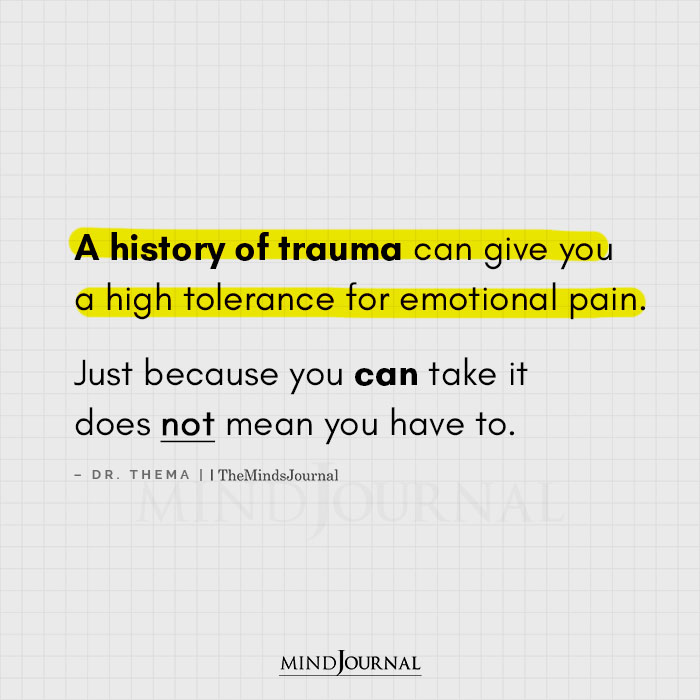
6. Cherish the important relationships.
This might sound a bit cliched or cheesy, but when it comes to overcoming childhood trauma, joy and love are the two best medicines. The more you give love, the more you receive it back.
If you’ve had a tough time when you are young, it can be difficult to see the truth in the lesson. Despite all the pain and suffering your parents made you go through when you were a child, at some level, you still want their love, support, and approval. This can make accepting, loving relationships difficult, and healing childhood trauma in adults a massive challenge.
Taking care of the close relationships in your life will help you feel that you belong and that no matter what, you are not alone. So, spend ample time with your friends and family and treat your kids with all the love that you hoped for when you were a child.
Related: How To Heal From Childhood Trauma When Its Hampering Your Mental Health
7. Be your own coach and cheerleader.
One of the best lessons you can learn from your childhood trauma is how tough you can be all by yourself. No matter how bad things were, you made it out the other side and now have all the potential in the world to thrive personally, professionally and spiritually.
So, the next time you start to feel all the negative emotions like anger, self-hatred, regret, and shame starting to crop up, remind yourself how strong you actually are. In case you ever feel lonely and unsupported, tell yourself that you are the one who is responsible for all your positive qualities.
The best way to love yourself is by noting down your five best qualities that you admire about yourself, and three of your biggest accomplishments. This will remind you that you are more than your childhood trauma, and there is a lot in you to admire.
Recovering from traumatic childhood experiences takes a lot of emotional and mental strength. However, by accepting the feelings and addressing them, you are taking a step towards personal acceptance, as well as furthering your ability to empathize with others in situations of suffering.
So, don’t be stuck to your painful past; instead, focus on the bright future you have lying ahead of you.
Want to know more about healing from childhood trauma? Check this video out below!
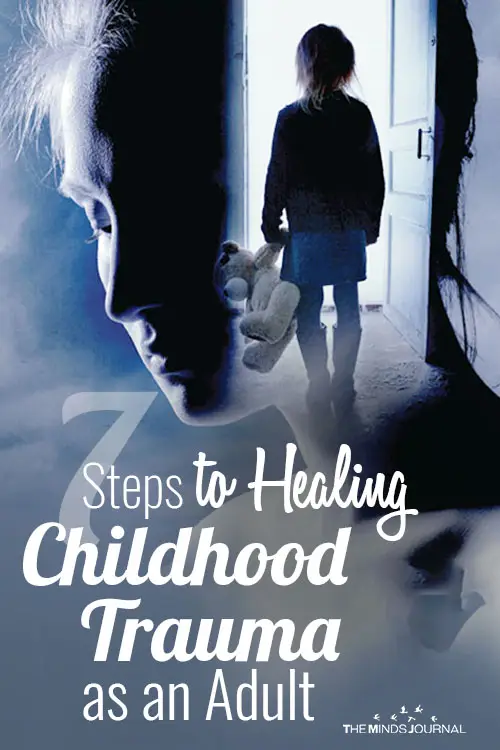
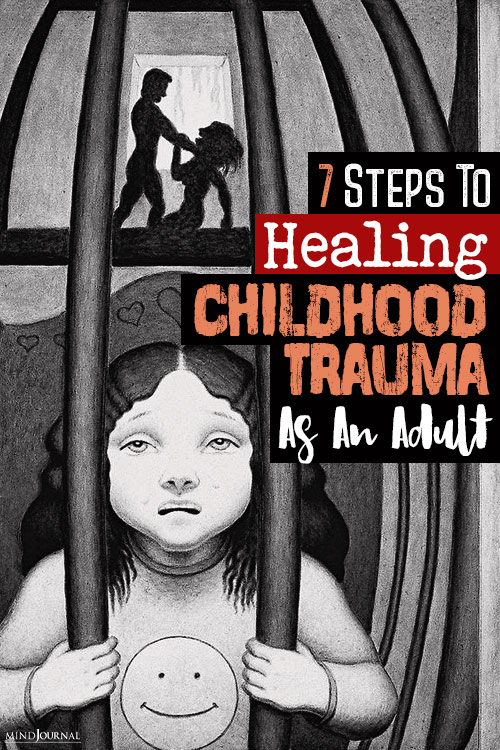
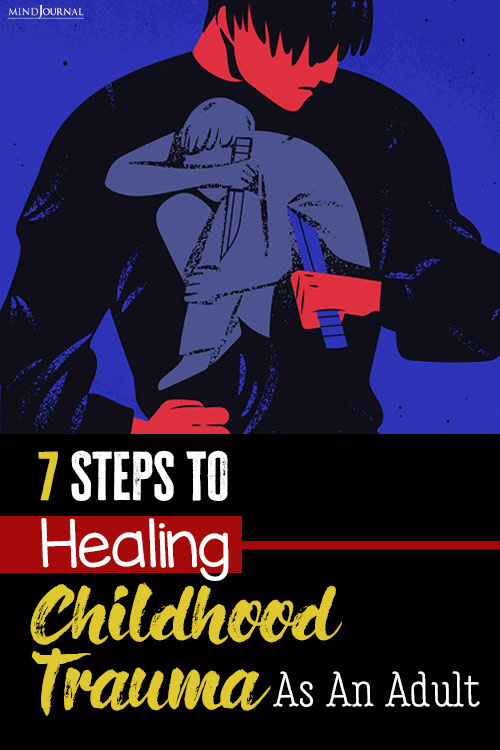
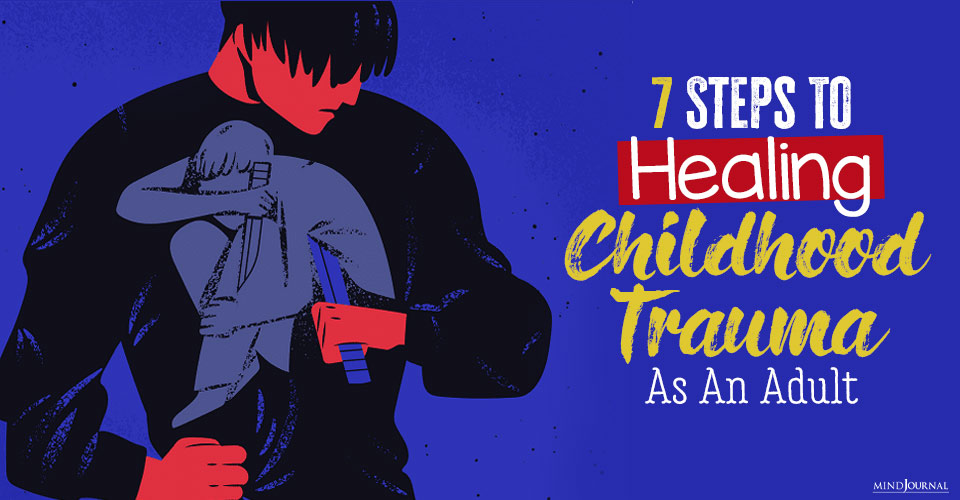





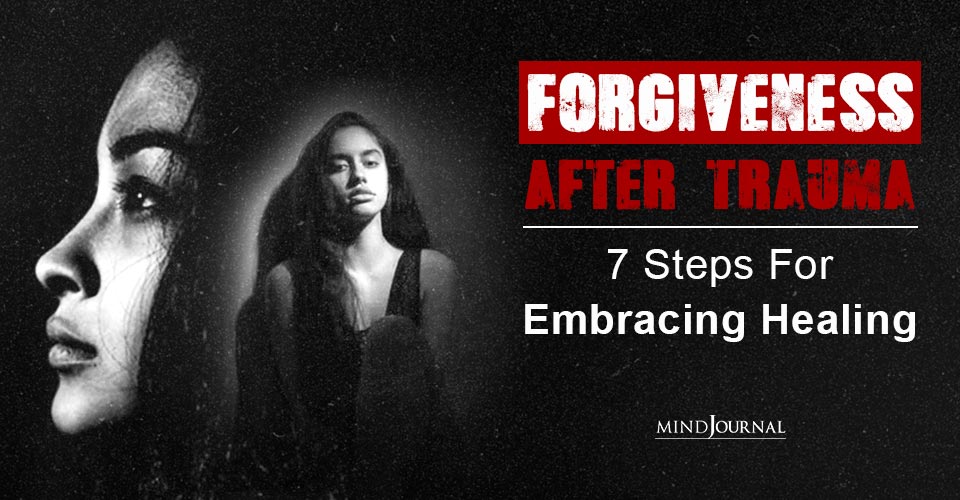

Leave a Reply
You must be logged in to post a comment.